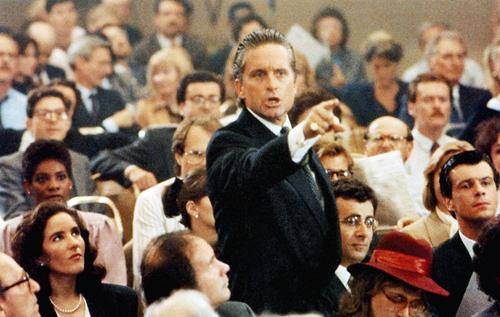“So You Just ‘Raided’ Your First Company” – A Letter To Non-Professional Traders
Submitted by Anonymous,
So you just “raided” your first company: A letter to non-professional traders
Congratulations to “WallStreetBets”. Gamma trading is fun and anyone who has traded the market for the past three decades saw this coming. As capital markets look toward Monday and what is “priced in” to GameStop, something bad is happening. And if nobody says something, the consequences will harm everyone.
For background, I’m a portfolio manager who has been doing this since before 2009. This will be my third market cycle.
Zero Hedge has written extensively on market manipulation, specifically in commodity markets and equities using “boiler rooms” and high frequency trading algorithms such as the infamous “ignition trades” much of this knowledge has not been properly communicated or shared with “wall street bets” retail traders. A short squeeze is legal, but when a coordinated attempt at price manipulation is attempted, then it can be defined as a dangerous offense. This is a grey area. If you are new to finance, please study up on what happened when previous traders have tried to “corner the silver market” or the infamous Volkswagen trade or LIBOR manipulation. Unwinding and the liquidity drains on the larger capital market to solve these trades are dangerous.
On a related topic, liquidity trades can have unintended consequences on other parts of the economy, such as when program trades in 1987 led to a flash crash.
The capital markets work on a public hazard principle, much like driving a car. You drive safe to protect the other guy. You can drive fast, but the damage caused to the reputation of the market and confidence in counter party risk can be permanently damaged; just like a deadly car crash. And the margin of error, like extreme speeding can wipe you out in a second. A “flash crash” can wipe you out, be hedged and make sure you understand the math & market structure of these leveraged trades.
Retail investors must understand or should be made aware of that gamma trading depends on liquidity shortages and as we saw in the market action of Gamestop and other stocks today, this market structure is dangerous to everyone. Complacency on 50% moves upwards must also be monitored and expected losses of 50% or more must also be factored in before people invest; in much the same way people must make educated investments before making investments in options, where unlimited losses may happen, or stocks on margin.
The reason I say this to you is because every mania since 1918 has led to a major market crash over the past 100 years. In every major market crash, it was retail accounts being locked out which led to crippling economic losses amid the retail public who exuberantly placed their savings into the market.
Many people today complained about their retail accounts to “Robinhood” and “Ameritrade” being locked out for various unconfirmed reasons. However, if one were to “google” this is a very loud alarm bell of a market top.
In 1929, Joe Kennedy saw, was horrified and wrote to the WSJ that manias were encouraging retail traders to form trading clubs and were investing in “Insull Trusts” and hundreds of penny trade brokerages were emerging in New York to prey on their inexperience. The Insull Trusts were overleveraged assets, often real estate and utility companies which were propped up by stock buybacks and equity speculation. When the first market crash happened, which led to the Great Depression, it was the Penny Brokers, unable to satisfy retail accounts due to the brokerages own cash crunches which led to the infamous riots and wave of iconic “jumping” suicides in the weeks after the crash. Those were not bankers who killed themselves but wiped out retail punters as documented in many economic history books about the crash.
In 1998, again, after a euphoric mania the dot com bubble stocks gave way to the collapse of the tech sector, following the disaster of the “Pets.com” IPO. In the flash crash, retail investor accounts were locked. Preventing millions of “Freedom 55” investors (Generation X and Boomers) from trading out of their positions. Many of those households and their savings were wiped out. Those households which survived 1998’s market crash & recession only returned to their previous wealth level, after inflation adjustment in the early 2010’s. Faith in retail brokerages, market integrity and public trust in banks never recovered. Even to this day, legislation like “Glass Stegall” is spoken about, but nobody really remembers why or how it happened; or its consequences to those who suffered the most in 1998.
Like 1998, we have seen “Robinhood” and other retail traders allegedly start to moderate access to the stock market. Economists talk about an economic event called a “Minsky Moment”. Given the market signals, retail investors should review these economic signals before a Minsky moment happens in this momentum driven market.
I would not be shocked if “Robinhood” is the new Lehman Brothers and we are months away from a major crackdown on capital markets by regulators. I also suspect that should GME suffer a Minsky moment, the thin liquidity structures in our current market will trigger a major market move similar to 1987.
I will say I have not studied this specific issue to cause alarm, but if regulators are not watching this issue and its parallels to history, now they should be.
So be safe out there.
Tyler Durden
Sun, 01/31/2021 – 12:30
via ZeroHedge News https://ift.tt/3tcqT6x Tyler Durden
